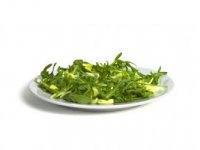News Hooks:
This World Health Week (3rd Oct – 9th Oct), a ground breaking new diet called “The D-Diet” is perfectly possible to reverse type 2 diabetes. In the UK alone, 2.8 million people have been diagnosed with diabetes and it is expected that by 2025 over four million people will have it because a rapid increase of overweight and obese people. The D-Diet has been introduced by the UK’s health and nutrition charity the Vegetarian & Vegan Foundation (VVF) and is helping diabetics across the country reduce their medication and shed the excess weight, it gives better results than any single medication. An extensive, 21-year study involving over 25,000 adults found that diabetes is less frequent amongst vegetarians and vegans. Those on meat-free diets had a 45 per cent lower risk of developing diabetes compared to the population as a whole. The D-Diet comes at a time when scientists continue to debate about nature versus nurture - whether falling ill is partly down to your genes (nature) or partly down to the environment (nurture).
Environmental factors such as diet have been linked with the chances of developing certain diseases, contradicting the belief that a condition like breast cancer or diabetes is beyond your control and that ‘fate’ will decide. This type of genetic fatalism results from the much-publicised link between genes and breast cancer. However, less than 10 per cent of breast cancers are due to abnormal genes, the vast majority (90 per cent) are caused by environmental factors, including diets containing meat and dairy.
A new report; One in Nine, explains how breast cancer cases are rising and examines the evidence linking red meat and dairy to this disease. When looking at the relationship between diet and breast cancer in 40 different countries, researchers found a link between meat, milk and cheese and breast (and ovarian) cancer - meat was most closely associated, followed by cow’s milk and cheese. In contrast, cereals and pulses were shown to protect against breast cancer. Britain has one of the worst health records, with obesity increasing four-fold in the last 25 years, amazingly, it’s about to overtake smoking as the leading cause of early death. Each year, there are over 44,000 new cases of breast cancer and one in every nine women (and one in every 300 men) in the UK will develop breast cancer at some point in their lives. An international study of 2.7 million patients rated us as the fifth worst out of 20 countries in Europe for cancer survival rates.

